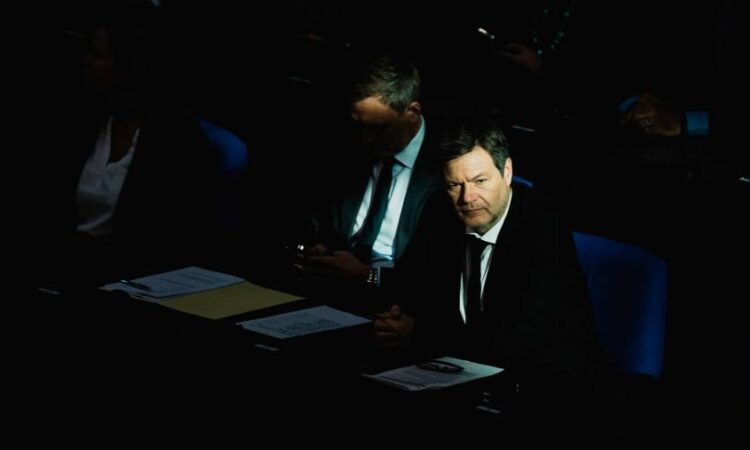
Germany’s deputy chancellor said Berlin will crack down on companies that dodge western sanctions imposed on Moscow, including the threat of criminal prosecution for false export declarations.
Robert Habeck said sanctions evasion was “no minor misdemeanour” as he unveiled proposals to clamp down on the practice of companies selling goods to Russia via third countries. He said he wanted the plan to be adopted across the EU.
A paper released by Habeck’s economy ministry said trade data showed a “considerable amount” of sanctioned products were being exported from the EU and Germany to certain third countries “and then exported further from there to Russia”, despite the swingeing sanctions imposed on Moscow since it launched its full-scale invasion of Ukraine nearly a year ago.
“We have to jointly deal with these [attempts to] bypass sanctions more effectively than we have up till now, both on a national and an EU level,” it said.
Germany will push for the proposals to be enacted as part of the EU’s 11th package of sanctions against Russia, Habeck said on Thursday, adding that such businesses were “betraying the interests of [the Ukrainian] people who are fighting for their freedom”. EU ambassadors are aiming to sign off a tenth sanctions package this week.
The minister said companies will have to provide transparent “end-use statements” as part of their export declarations “to say that they will not export [their goods] further to Russia”.
The ministry said this new rule would apply to “all sanctioned goods that have a significance for Russia’s war machine”. Anyone who provides false information in the end-use statement would face criminal conviction, it said.
Habeck’s intervention came as the EU and its partners including the US and UK met to share intelligence on possible sanctions dodging.
David O’Sullivan, the EU’s newly appointed sanctions envoy, told the FT before the meeting that a surge in exports to countries in Russia’s neighbourhood suggested banned products could be entering the country via the back door.
The European Bank for Reconstruction and Development said Armenia and Kyrgyzstan have experienced a sharp increase in western imports and a rise in exports to Russia. Turkey’s exports to Russia have also jumped.
Habeck said trade data showed that exports of certain goods to third countries which had been at stable levels for years “had suddenly shot up since the start of the war or the introduction of sanctions”.
“This can’t just be a coincidence,” he said. “The idea that this is a business model that has established itself beyond war and sanctions is completely implausible.”
Under the proposals set out by his ministry, Habeck said sanctions-dodging companies should be blacklisted, “so trade with such companies would no longer be possible” and “the flow of goods to Russia would be interrupted”.
He said Berlin would also seek to introduce new rules obliging “anyone who has knowledge of, or suspects, sanction evasion to report it”. People who fail to disclose such information would face punishment, the ministry said.
Germany will also seek to sanction individuals or companies for exporting products manufactured in the EU to Russia via a company in a third country. Habeck’s ministry said countries that failed to co-operate on anti-Russian sanctions should be threatened with punishment, including potentially withdrawing the relief they currently obtain from EU import tariffs on certain goods.





